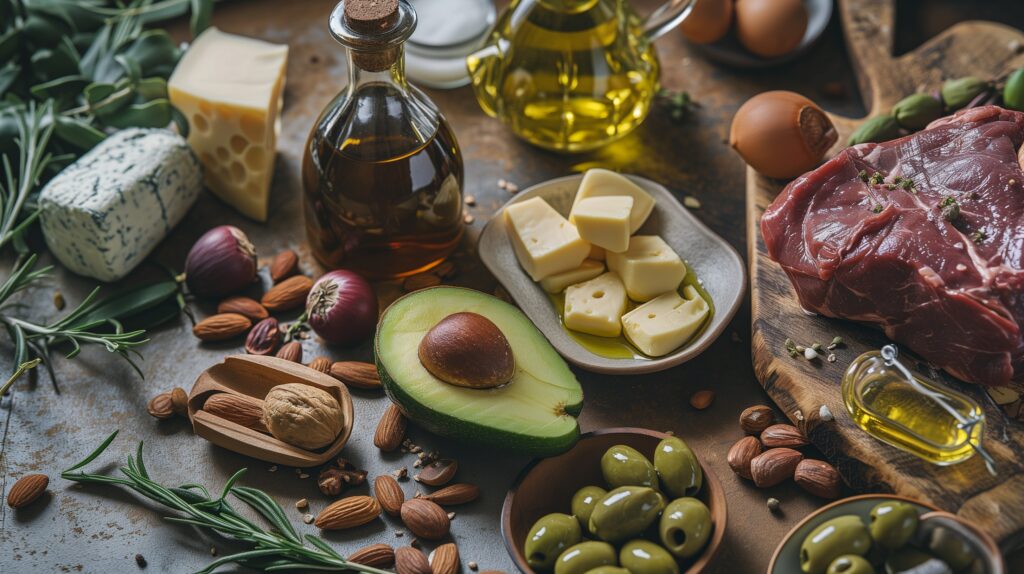Navigating the landscape of dietary fats can often feel like a complex puzzle. With so much information available, understanding which fats to limit and which to embrace for optimal heart health is essential. Reducing your intake of unhealthy fats, specifically saturated and trans fats, is a significant step towards preventing coronary artery disease. These types of fats are commonly found in foods like red meat, dairy products, and processed snacks. However, the world of fats isn’t solely villainous; monounsaturated and polyunsaturated fats are the health heroes in this story. Found in sources like olive oil, avocados, and nuts, these fats can be beneficial when included in your daily diet. In this article, we’ll guide you through the maze of fats, helping you make informed choices to support your heart health. And for those who are digitally savvy, the ‘My Heartlet‘ app can be a companion in your journey to a healthier heart through better dietary choices.
Table of Contents
Fight Unhealthy Fats with Knowledge!
Understanding fats is the first step in making healthier dietary choices. Saturated fats are typically solid at room temperature and are found in foods like butter, cheese, and fatty cuts of meat. According to the American Heart Association, saturated fats can raise your bad cholesterol levels, thereby increasing the risk of heart disease and stroke. Meanwhile, trans fats are often found in fried foods, baked goods, and processed snack foods. The Centers for Disease Control and Prevention (CDC) notes that trans fats raise bad cholesterol and lower good cholesterol, which is a double blow to heart health.
Knowledge is power, and understanding the impact of these fats is crucial. Saturated fats should be limited to less than 10% of your daily calories, while trans fats should be avoided as much as possible. The FDA’s decision to remove partially hydrogenated oils, a primary source of trans fats, from processed foods is a step in the right direction. However, it’s still important to read labels carefully to ensure you’re making heart-healthy choices.
Swap Bad Fats for Good Fats
Replacing unhealthy fats with healthier options is easier than you might think. Start by swapping out saturated fats for healthier monounsaturated and polyunsaturated fats. Instead of cooking with butter, try using olive oil or canola oil, which are rich in monounsaturated fats. When it comes to dairy, opt for low-fat or fat-free versions to cut down on saturated fat without sacrificing calcium and protein.
Incorporating nuts, seeds, and fish into your diet can increase your intake of polyunsaturated fats, which include omega-3 and omega-6 fatty acids. These fats are beneficial for heart health, as they can help reduce blood pressure and minimize the risk of irregular heartbeats. The Mayo Clinic offers great insights on how to choose fats wisely.
Enjoy Heart-Healthy Fats Daily
Enjoying heart-healthy fats daily is not just about avoiding the bad fats; it’s about making room for good fats in your diet. Avocados, for example, are a great source of monounsaturated fats and can be added to salads, sandwiches, or even smoothies. Similarly, seeds like flaxseeds and chia seeds are high in omega-3 fatty acids and can be easily incorporated into your daily meals.
Here are some tips to include heart-healthy fats in your routine:
- Use olive oil as a salad dressing or for light sautéing.
- Snack on a small handful of almonds, walnuts, or pistachios.
- Include fatty fish like salmon, mackerel, or trout in your meals twice a week.
- Spread avocado on toast instead of butter for a nutrient-packed breakfast.
Remember, balance is key. While these fats are healthy, they are also calorie-dense, so moderation is essential. The ‘My Heartlet’ app can assist you in tracking your daily fat intake and making sure you’re on the right path to heart health.
In conclusion, understanding and managing your intake of different types of fats is critical for maintaining a healthy heart. By educating yourself on the sources and effects of saturated and trans fats, swapping them for healthier fats, and enjoying these beneficial fats daily, you can significantly lower your risk of coronary artery disease. Remember to keep an eye on portion sizes and balance your diet with a variety of nutrients. Tools like the ‘My Heartlet’ app can support your heart-healthy journey by providing helpful tracking and insights. Embrace the power of knowledge and the richness of healthy fats to pave the way to a vibrant and hearty life!
